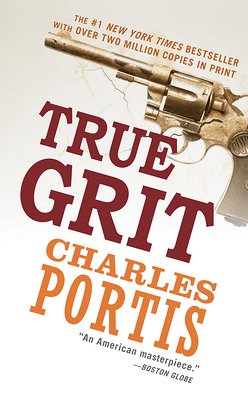APS TOGETHER
Day 5
From p. 73 to p. 89 ("I had forgotten about him.")
September 7, 2020 by Ed Park
The “famous pleader” Lawyer Daggett seemed almost mythical as Mattie wielded his name vs. Stonehill; so there is something incredibly moving in seeing Daggett’s letter, full of concern, calm, and confidence in her abilities.
It’s an unexpected tearjerker. We know that Mattie’s father has been murdered, but she snapped into action so fast that she hasn’t had time to mourn.
Mattie’s authorial voice is so strong that it’s nice, for a page or two, to step outside it for an outside perspective on her character.
Presumably this letter is something the older Mattie has preserved—thus unaltered by her own slant on things.
“You are her strong right arm now, Mattie, and you are a pearl of great price to me, but there are times when you are an almighty trial to those who love you.”
Stonehill redux: “I have a tentative offer of ten dollars per head from the Pfitzer Soap Works of Little Rock.”
Mattie revisits Rooster, still asleep at 10 a.m. “Men will live like billy goats if they are let alone.” (It’s true.) As a precondition to their agreement, Mattie helps Rooster with his fee sheets.
Four pages of strong dialogue nearly without a break: We can hear them getting closer (“little sister,” he calls her). “Are you still game?” “Game? I was born game, and hope to die in that condition.”
(Correction: I gave the date of the action a bit too early in a previous post—Hayes is president, so it’s 1877–1881.)
Portis undercuts the warmth of the recent Mattie/Rooster scene with Stonehill’s damning accusation “that he rode by the light of the moon with Quantrill and Bloody Bill Anderson.”
Quantrill’s Raiders, which included outlaws Frank and Jesse James, was a pro-slavery/anti-abolitionist guerrilla group, responsible for an 1863 massacre in Lawrence, Kansas.
Portis suggests that although Rooster is a federal marshal, he’s also conceivably a war criminal. (The significance of this went over my head when I first read it; a decade ago, a friend from the South pointed this out to me.)
Hilarious parsing of the expense account: “What he called his ‘vouchers’ were scribbled notes, mostly undated.” Rooster quibbles about date of when he met an informer named Society Red.
Under her questioning, R. says “Let us change the name to Pig Satterfield and make the date the seventeenth of October.” To which she replies: “His Christian name is Pig?”
Later, Stonehill tells M. that Rooster is a “greasy vagabond”; she says “I wanted a man with grit.”
